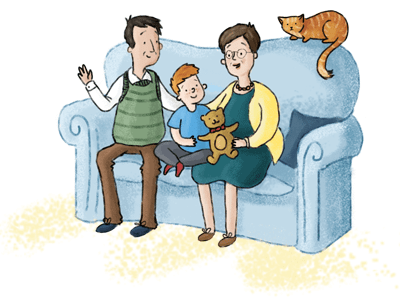
Disputes within the family can have a huge impact on children, even if they’re doing a good job of hiding it. When parents separate, it is understandable that children may feel uncertainty around the changes happening to their family and how it will impact them going forward. Carla Williams, CILEx Practitioner & Assistant Manager in the Family Law Department at Bromleys, explores what Child Inclusive Mediation is and why it is worth considering if your family is going through a transition due to separation.
What is Child Inclusive Mediation?
Child Inclusive Mediation gives children the opportunity to voice their thoughts and concerns when their parents are in mediation, giving them a safe and supportive space to voice their worries and ask questions without feeling as though they are taking sides or will upset either parent.
In a separate meeting away from their parents, the child will meet with the mediator and have the opportunity to share their feelings. If they give permission, the mediator will then share their concerns with their parents in a separate meeting.
Child Inclusive Mediation is nothing to worry about, in fact, it is a generally positive process for everyone involved. If a child does not want to participate, they will not be forced, but all mediation meetings will be age-appropriate opportunities for them to air their concerns in a safe and informal setting.
Will my child be asked to pick who they want to live with?
At no point during Child Inclusive Mediation will your child be asked to make a choice or decision by the mediator. Instead, they will be asked open questions that are designed to clarify their thoughts, feelings and wishes. These questions will be about a range of topics.
Why choose Child Inclusive Mediation?
Your child is a big part of your family, and their voice deserves to be heard. Child Inclusive Mediation gives them a safe space to speak to someone outside of the family and will give you as parents better insight into how to make this transitional period as smooth as possible. Letting them contribute to this process will help them feel empowered and confident that their wellbeing is being considered throughout.
There are instances where Child Inclusive Mediation isn’t the right decision for you and your family. This can include:
- If the child is particularly young
- If both parents can’t agree to mediation
- If they would struggle cognitively or emotionally understanding the process
- If there are multiple agencies involved already
- If child services deem it not suitable
Each family and case is different, but if Child Inclusive Mediation sounds like it could benefit your family then it is worth seeking legal advice to discuss the possibility of mediation with a professional. Our empathetic team at Bromleys is here to help, call us today on 0161 768 1596 to speak to our team, or email bromleys@bromleys.co.uk.











